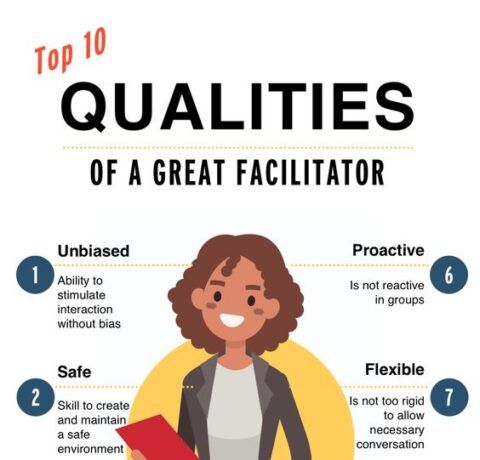29 Simple Tips to Improve Interpersonal Skills—Infographic
Interpersonal Skills are the way you interact with others- understanding their needs, motivations, and emotions while still respecting your own boundaries.
The best way for someone who wants to learn more about these important skills is by participating in various activities that will help educate and improve the skills.
Do you know what interpersonal skills are?
Interpersonal skills are all of the things you use to communicate with other people, whether they be friends, family, coworkers, or your girlfriend. It includes both verbal and nonverbal communication.
Interpersonal skills allow us to interact with other people in a way that is mutually beneficial. They can be hard to define and even harder to identify, but they’re essential for success in all walks of life.
In order to have an effective conversation or interaction with someone else, it’s important to understand their perspective on the topic at hand so you can effectively respond accordingly.
Tips to Improve Interpersonal Skills
Interpersonal skills are the ability to communicate effectively with others. In order to be a successful communicator, one must possess qualities such as empathy, negotiation skills, and social intelligence.
These skills can be learned through being involved in different types of activities from volunteer work to sports.
A major part of these interpersonal skills is being able to understand how people think and what motivates them without judging or making assumptions about their motives or thoughts.
Some tips for improving both your interpersonal skill set and your online behavior so that you can use these techniques responsibly while still getting ahead in life.
- Give a smile
- Listen more than you talk
- Ask open-ended questions
- Use body language effectively
- Be interested rather than interesting
- Get to the point quickly
- Ask questions about the other person
- Let people feel good about themselves
- Highlight others’ strengths and successes
- Eliminate distractions and interruptions
- Make eye contact with the person you’re talking to
- Don’t interrupt people when they’re speaking
- Use “I” statements instead of making generalizations about yourself or others
- Know your strengths and weaknesses
- Don’t take everything personally
- It’s also important not just to listen without saying anything back
- When listening, show empathy by addressing any concerns or fears brought up by others
- Emphasize where appropriate.
- Express your thoughts, feelings, and emotions in a healthy way
- Learn to forgive others for their mistakes
- Be engaged
- Establish rapport
- Defer judgment
- Observe others’ body language
- Don’t make assumptions
- Practice active listening
- Strengthen your memory
- Use other’s names when you talk to them
- Avoid offending people by considering their feelings beforehand
Bottom Line
When people talk about social skills they refer to the ability to read other people’s moods, body language, understand their feelings, facial expressions, or any other aspect of their being. Interpersonal skills are often associated with social skills.
Interpersonal skills are important because the person you’re working for or sitting next to could be your boss or colleague, or perhaps who knows, your future spouse. It’s safe to say that having good interpersonal skills is an asset in most professions and important to develop if you want to go far.
These skills are an important part of communication. If you’re able to master your interpersonal skills, it can have a positive effect on the workplace and other routine activities. It’s not always easy to improve these skills, but with practice, they will become second nature for you.





You can adjust your cookie preferences here.